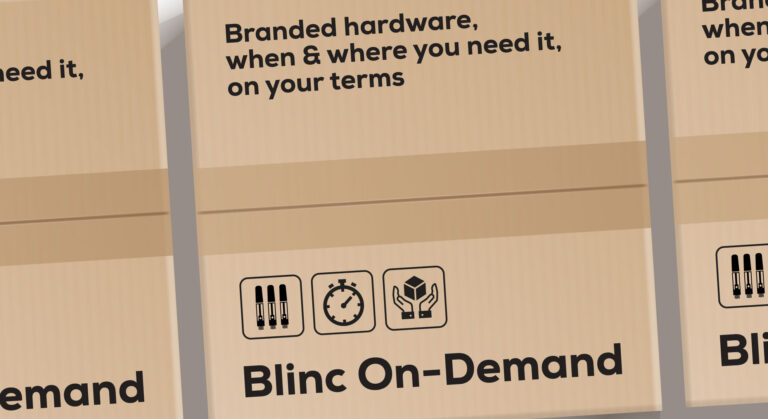Marijuana is currently classified as a schedule I substance, the same class of heroin making the legal sale of cannabis a federal crime. This loophole creates a system where large commerce stakeholders like banks and credit card companies refuse to collaborate with the cannabis industry. Without conventional partners, many business owners are sidelined and alternatively work in a nearly all cash business. The lack of security and transparency is problematic for regulators and those in the industry. Blockchain technologies, however, create a more open and reliable means of trade.
“Today, we rely entirely on big intermediaries — middlemen like banks, government, big social media companies, credit card companies and so on — to establish trust in our economy. And these intermediaries perform all the business and transaction logic of every kind of commerce, from authentication, identification of people, through to clearing, settling and record keeping. And overall, they do a pretty good job.” * Unfortunately, they are largely anti-cannabis. Enter Blockchain.
How the Marijuana Blockchain Works
Traditionally, trade deals must be monitored with a third party (e.g. a bank) that oversees and verifies the proof of transactions. With marijuana blockchain technology, the encrypted transaction reports are collectively updated and verified by a network of computers. Only the amount and a scrambled ID are known on the public ledger. This enables peer-to-peer verification that monitors against counterfeit and allows anonymous trading. Better yet, the more the blockchain in cannabis is used, the more secure and legitimate it gets.
The Difficulty of Cannabis Banking
The sale of cannabis is still a federal crime so many banking institutions have refused to deal with professionals in the marijuana industry. Take Shaun Gindi, CEO Colorado-based dispensary Ajoya who has been removed from 6 banks. This has prompted him to deal with a nearly all cash business where he has to pick up his revenues daily in armored trucks. Switching to cryptocurrencies and taking advantage of blockchain in cannabis may be the solution for cannabis banking.
Leading Cannabis Blockchain Solutions
Tokken is an end-to-end cannabis tech platform where tokens are used as an accounting tool for private and secure transactions across a digital ledger. Tokken CTO Cory Flanigan told IBM thinkLeaders,“there is no conversion. Instead, for each transaction, we generate a cryptographic signature of the metadata surrounding the transaction.” Consumers and businesses can use this blockchain technology with USD to resolve cannabis banking and trading problems. At participating locations, customers or patients may use Tokken to pay for cannabis. Gindi now uses this software and can safely transfer funds into any bank.
Others like ‘The Chex’ are working on back-end solutions to Cannabis banking. The Chex offers fully customized platforms for B2B or B2C exchange featuring cross-platform accessibility, inventory management, supply chain visualization, standardization and more, all across the blockchain.
Webjoint Ceo Chris Dell’Olio has said: “Compliance reporting has always been the largest hurdle for the cannabis industry.” This Colorado-based SaaS company is one of many that utilizes a cannabis blockchain technology to create safe and legal services for cannabis banking and trade. The marijuana blockchain enables users of Webjoint to monitor inventories by overseeing stores and points of sale as well as tracking delivery vehicles and drivers.
IP on the Blockchain
Growers are using the cannabis blockchain platform to store IP for their strains, protecting them from other growers claiming rights to their strain. For a fee, growers can send flower samples to Medicinal Genomics or a partnering lab where a genotype of the plant is determined. The data is run through a cryptographic algorithm scrambling the file’s info into a string of numbers known as a hashsum or fingerprint. This hashum is then stored within a Bitcoin transaction note, effectively identifying and registering the strain. The data is accessible on the blockchain and can be used as a timestamp which can be used as proof that the grower had been growing this strain before.
Alternatives to Bitcoin
For cannabis enthusiasts who want to trade within a cannabis economy solely on cryptocurrencies have the option to do so. Many “Altcoins”, alternative currencies to Bitcoin now exist like Litecoin or Ethereum. While many of these can be used for Marijuana banking purposes, the following are explicitly used for and around cannabis banking. These include but are not limited to $Weed, Potcoin, Cannabis Coin, Dopecoin, and $GRWI. The $GWRI token offers strain registration and an e-commerce platform for 12,000 cannabis related products, mostly wholesale supplies for growers.
Breaking from the Dirty History of Bitcoin
The marijuana blockchain may offer the security and validity to counter negative stereotypes in cryptocurrency and legal cannabis. Many cannabis consumers no longer need to purchase on dark websites like the Silk Road as legal dispensaries have emerged across the U.S. Zarrad, founder of Tokken and former regulator told MERRY JANE “The blockchain’s ledger is a great communication tool for regulators… If we can transfer the cash flow to an electronic format, you eliminate most the risk of money laundering.” When Bitcoin and blockchain professionals collaborate with the legal cannabis industry, it brings legitimacy to both sectors









